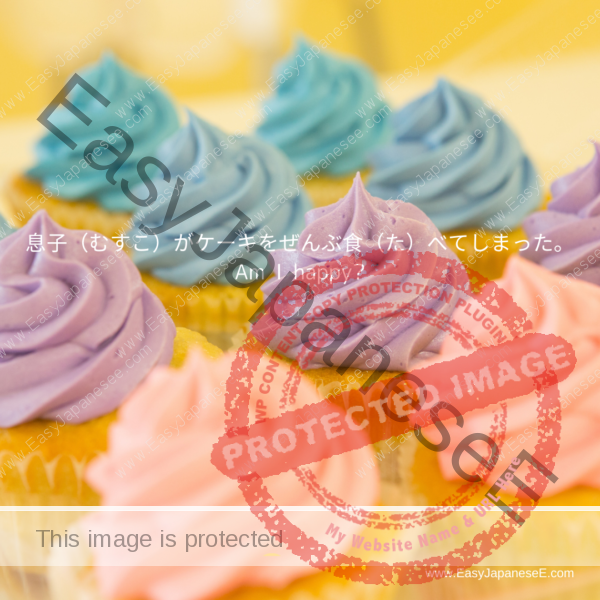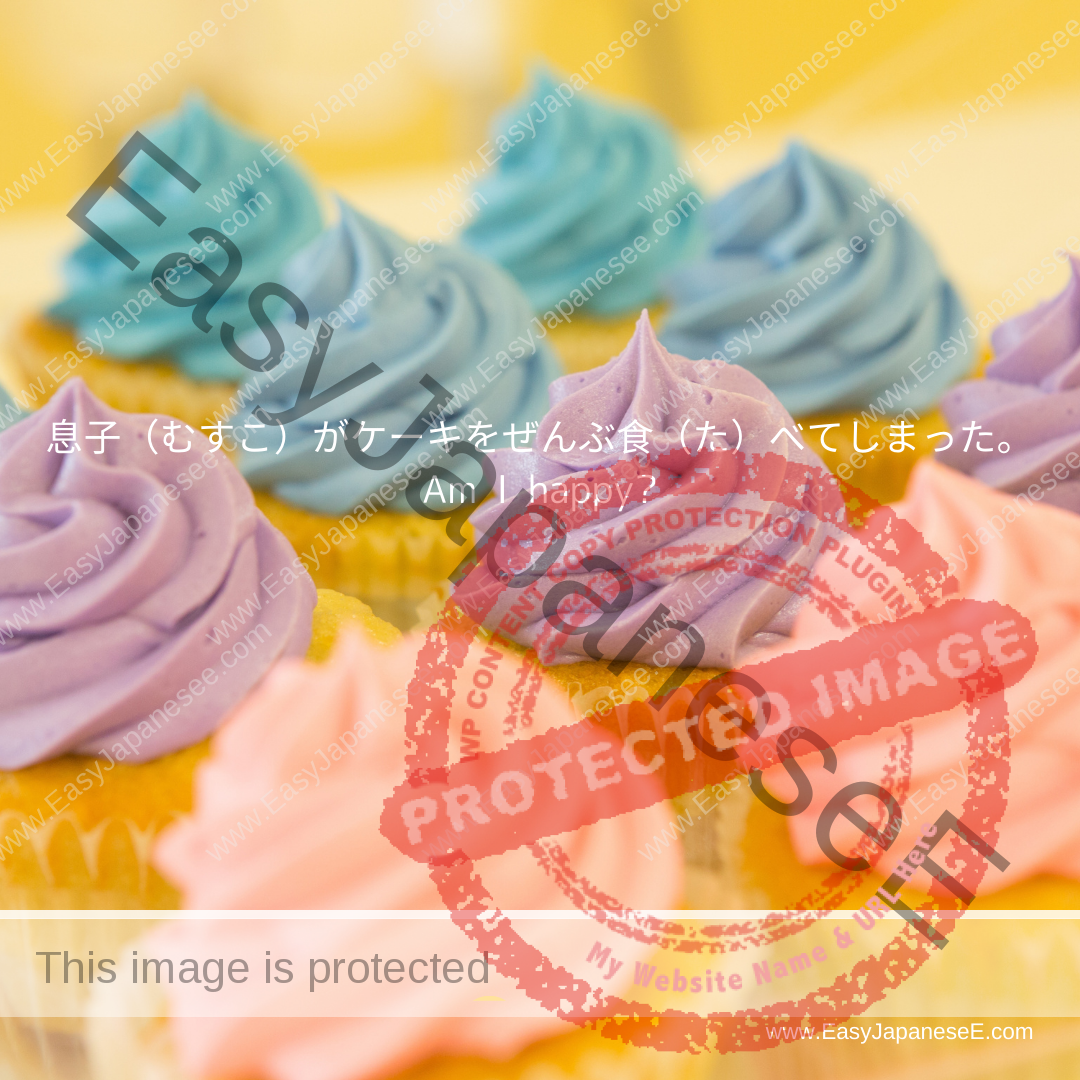
息子がケーキをぜんぶ食べてしまった。
Am I happy?
[てform] + しまう means “to have done something fully/completely” but often (not always) it accompanies a feeling of regret or surprise.
So when a mum says, 息子がケーキをぜんぶ食べてしまった. it would usually include some surprise and/or a bit of annoyance. If she is OK about the situation, probably she would say 息子がケーキをぜんぶ食べた。If she is happy about the situation, she would say 息子がケーキをぜんぶ食べてくれた。
Some more examples.
<Just stating the completion of action>
宿題をしてしまったから、ゆっくりできる。
As I’ve done the homework, I can relax.父はアメリカに行ってしまった。
My father has gone to America.今日中にこの本を読んでしまうつもりだ。
I’m intending to finish reading this book today.
<with apprehension>
一日中ネットフリックスを見てしまった。
I watched Netflix all day.チョコレートをぜんぶ食べてしまった。
I’ve eaten all the chocolate.宿題をしないで寝てしまった。
I slept without doing my homework.サッカーの試合でケガをしてしまった。
I’ve got injured during the soccer game.大事な書類をなくしてしまった。
I’ve lost an important paper.車をぶつけてしまった。
I’ve crashed while driving.道を間違えてしまった。
I’ve taken a wrong turn somewhere.遅刻してしまった。
I got late (for class/work).寝坊してしまった。
I’ve slept in.
For more study material for JLPT N4 exam, please visit JLPT N4 Grammar and Vocab and JLPT N4 Kanji pages.

